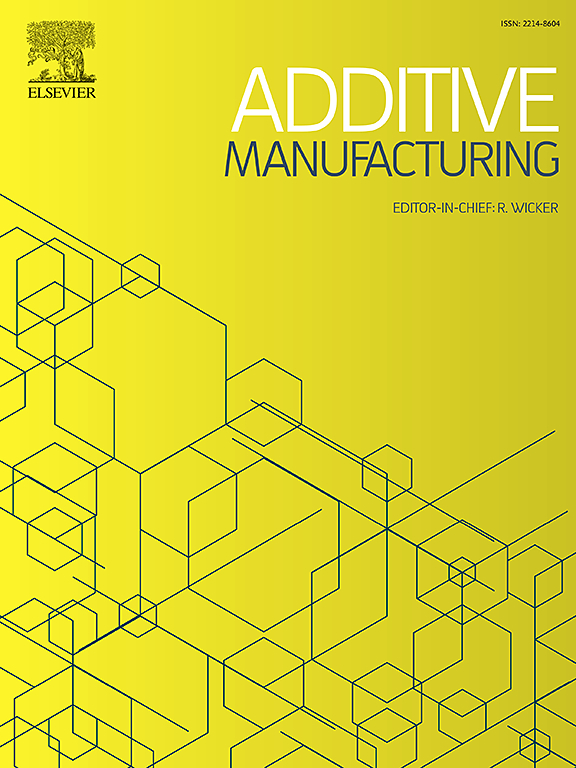Laser additive manufacturing of lunar regolith simulant: New insights from in situ synchrotron X-ray imaging
IF 10.3
1区 工程技术
Q1 ENGINEERING, MANUFACTURING
引用次数: 0
Abstract
The establishment of on-site autonomous manufacturing capabilities for a sustainable long term lunar base can benefit from additive manufacturing. While previous studies have demonstrated that laser powder bed fusion (LPBF) can manufacture lunar Regolith parts, significant challenges remain in fabricating large structural parts with consistent properties due to the complexities of LPBF process and the variability in the mineralogical composition of Regolith. This study examines process instabilities, melt flow dynamics and defect evolution during LPBF of lunar Mare Regolith simulant LMS-1, using in situ and operando synchrotron X-ray imaging and ex situ characterisation techniques across a range of processing parameters. Five processing regimes for LPBF of LMS-1 were identified: (i) no deposition, (ii) balling, (iii) sintering, (iv) vitrification, and (v) vaporization. The optimal LPBF parameters are 145 W laser power, 390 mm/s scan speed, and 0.25 mm hatch spacing. A laser re-scan strategy is used to further improve sample consolidation and minimise thermal stress accumulation in LMS-1 parts. Essential materials data and in situ X-rays images of melt pool geometry evolution for validating multiphysics numerical models of lunar Regolith laser melting are provided.
求助全文
约1分钟内获得全文
求助全文
来源期刊

Additive manufacturing
Materials Science-General Materials Science
CiteScore
19.80
自引率
12.70%
发文量
648
审稿时长
35 days
期刊介绍:
Additive Manufacturing stands as a peer-reviewed journal dedicated to delivering high-quality research papers and reviews in the field of additive manufacturing, serving both academia and industry leaders. The journal's objective is to recognize the innovative essence of additive manufacturing and its diverse applications, providing a comprehensive overview of current developments and future prospects.
The transformative potential of additive manufacturing technologies in product design and manufacturing is poised to disrupt traditional approaches. In response to this paradigm shift, a distinctive and comprehensive publication outlet was essential. Additive Manufacturing fulfills this need, offering a platform for engineers, materials scientists, and practitioners across academia and various industries to document and share innovations in these evolving technologies.
 求助内容:
求助内容: 应助结果提醒方式:
应助结果提醒方式:


